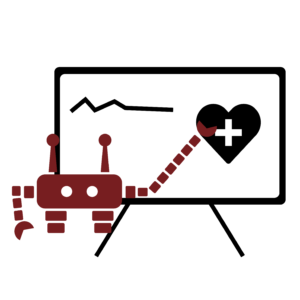YOUR TEAM: You will spend 18 months in the School of Natural and Computing Sciences at the University of Aberdeen, and 18 months at Philips Research in Eindhoven.
GOAL: The aim of this project is to develop Natural Language Generation (NLG) technology which communicates health data, analyses, and insights to users. The focus will be on effective communication with users who have limited literacy, numeracy, and domain knowledge.
Expected Results: ESR 7 will focus on specific health domain(s) of interest to Philips, such as parents of babies and young children. Expected results are:
- Literature review and analysis of how information is currently presented in personal health apps.
- Analysis of what users want to know, and where current apps do not effectively communicate with them. This will focus on the target Philips apps, and include discussions with users and domain experts.
- Development of NLG algorithms, informed by the above analysis, which effectively communicate health information in this context.
- Implementation of the algorithms within one or more of the targeted Philips systems.
- Evaluation of the understandability and effectiveness of the algorithms
- Scientific papers and written PhD thesis based on above work
The student will be encouraged to include user-modelling, multimodality, dialogue, and machine learning techniques in the project where they seem appropriate. He or she will also be expected to collaborate with and support other PhilHumans researchers.
Whilst in Aberdeen the researcher will be expected to make regular visits to Philips Eindhoven, and vice-versa. The researcher will also be encouraged to visit Tilburg University (Prof Pauws is a faculty member at Tilburg as well as a researcher at Philips) and the other universities in the PhilHumans consortium.
The researcher will also be expected to go to training courses, including
- Aberdeen: generic PhD training, relevant modules from Aberdeen’s AI MSc, such as NLG and evaluation of AI systems
- Philips: Personalising content in e-health systems, human interaction with embodied conversational agents
- R2M: Exploitation and dissemination
Additional essential requirements
- Master degree in Computer Science or related field
- Passionate about health care and empowering patients
- Excellent interpersonal and communication skills, for talking to users, domain experts, and fellow researchers
- Strong programming and software development skills
This post does not meet the minimum requirements as stipulated by UK Visas & Immigration (UKVI) to qualify for an employer-sponsored visa. We are therefore unable to consider applications from candidates who would require an employer-sponsored visa to work in the UK.
Note: In the event of a no-deal in the Brexit negotiations, the UK government has guaranteed to underwrite the funding until the end of 2020, transition period arrangements are in place for visas too so there should not be any concerns regarding the hiring of EU candidates to these posts in the UK.
Additional desirable requirements
- Experience in evaluating AI systems with human users
- Experience with NLG or other aspects of Natural Language Processing
- Experience with digital healthcare or other aspects of medical informatics
- Fluency in Dutch (we may work with users in Netherlands)
- Good understanding of commercial perspective on research
Principal Investigator: Prof. Ehud Reiter (UNIABDN)
Academic PhD Supervisor: Prof. Ehud Reiter (UNIABDN)
Industrial PhD Supervisor: Steffen Pauws (PHILIPS)
Industrial PhD co-Supervisor: Rim Helaoui (PHILIPS)
Main contact: Prof. Ehud Reiter (UNIABDN)
Email: e.reiter@abdn.ac.uk


